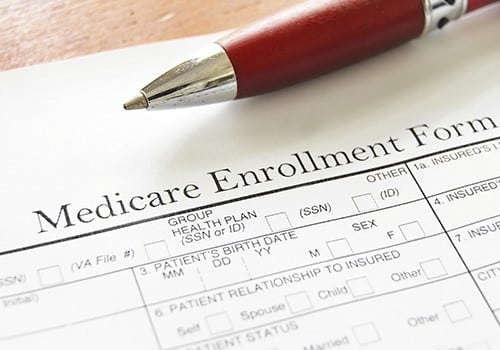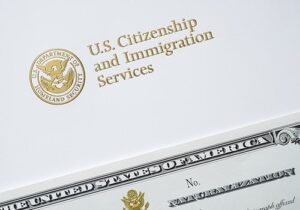If you are approaching age 65, you are likely already considering your Medicare coverage options. Do you know what documentation you will need when you apply?
The Medicare application process is not complicated but requires some specific documents. Your situation will likely determine which documents are needed and which are not.
If you are getting ready to apply for Medicare, then keep reading. We will tell you all the documents you might need to submit along with your application.
Documentation Required for Medicare in United States
When you’re ready to sign up for Medicare health insurance, most people enroll in Medicare Part A and Medicare Part B. However, you can opt out of Medicare Part B since a monthly premium is required for that coverage. Regardless of which option you choose, the documentation necessary to sign up will be the same. Here are the documents you will need to provide.
Birth Certificate
Since the most common way to qualify for Medicare is by reaching 65, you will need your birth certificate to prove your age. Typically, your initial enrollment period begins three months before your 65th birthday. So, you can use your birth certificate to validate your age and the start of your enrollment period. Younger individuals with disabilities or certain conditions can also qualify for Medicare, although a birth certificate is almost always needed.
Social Security Card
Medicare uses your Social Security number to verify your identity and benefit enrollment. Sometimes, knowing your Social Security number is enough, but Medicare might sometimes require your Social Security card. This is especially true when you are already receiving Social Security benefits from the Social Security Administration.
If you have lost your Social Security Card, you can find out how to quickly replace one here.
Proof Of U.S. Citizenship
You will generally need to be a U.S. citizen to sign up for Medicare healthcare coverage. You can use a couple of documents to prove your citizenship. A U.S. birth certificate will usually work; you can also use a U.S. passport to prove you are a citizen.
Without these documents, Medicare might not be able to verify your eligibility for Medicare benefits. If you are not a U.S. citizen, you can still qualify for benefits, but you will need the documentation mentioned in the next section.
Permanent Resident Card
If you are not a U.S. citizen, it is still possible to qualify for Medicare benefits. Before applying for Medicare, you must be a permanent resident who has lived in the United States for five continuous years. You should be prepared to show your green card, and Medicare will let you know if any additional documentation is needed.
Military Service Records
If you served in the military, you should be prepared to show your military service records. You might also qualify for health insurance through the Veterans Affairs office, and there are some special rules about Medicare and VA insurance. In most cases, you can still get Medicare, but they must verify that all the rules are met. If you did not serve in the military, you will not need to worry about providing this type of documentation.
Tax Returns
Be prepared to provide your tax returns from the previous year and any self-employment tax information you may have. Since your income determines your Medicare Part B premium, Medicare will need verification of your income when you apply for benefits. Although original documents are necessary for much of your documentation, photocopies of your tax returns will suffice.
Other Health Insurance Information
Some people who qualify for Medicare might also have other health insurance. This could be group health insurance through an employer-sponsored plan or other medical insurance. In those cases, you might be able to use Medicare in conjunction with your other health insurance.
Medicare will need details about your other coverage to verify whether you can do this. If you have other coverage, be prepared to provide your insurance card or other plan documentation to Medicare when you apply for benefits.
KEY TAKEAWAYS
- As you prepare to sign up for Medicare, gathering all the necessary documents is essential. In some cases, you may need original documents.
- The potential documents you might need for enrollment are a Social Security card, Proof of US Citizenship, Permanent Resident card, Military Service Records, and Tax Returns.
- Your enrollment in Medicare may happen automatically, or you may need to provide the necessary documents during your online or in-person application process.
What To Do If You Have Lost Any Required Documents
So, what happens if you are trying to enroll in Medicare coverage but have lost a document you need? For instance, you might not be able to find your birth certificate. In that case, you will need to contact the issuing agency of the document to obtain a new version.
- For birth certificates, you will typically need to contact the State Department of Health in the state where you were born. They can issue you a new certified copy of the document.
- You must contact the IRS for assistance if you need copies of your old tax returns.
- Previous military records can usually be obtained by contacting the branch of service you served.
This shows the importance of locating these documents before applying for Medicare. If you need to get a replacement document, you should know that it can sometimes take several weeks. So, start the process early to ensure you have all your documentation in plenty of time before beginning the Medicare enrollment process.
Medicare Eligibility Requirements
Now that you know what documents you need to enroll in Medicare, you must understand how to qualify. You must meet the eligibility requirements before you can sign up for Medicare. So, who is eligible for Medicare? There are three main ways to qualify for coverage.
- Medicare is available to those 65 and older, younger individuals with disabilities, and those diagnosed with end-stage renal disease.
- In addition, you will need to be a U.S. citizen or permanent resident to qualify for Medicare benefits.
- If you are not a citizen, you must have lived in the United States for at least five continuous years immediately before you applied for a Medicare health plan.
You will likely need to prove your legal residency by providing your green card or other documentation along with your application. If additional information is required, Medicare will notify you to provide other documentation. You can learn more about the eligibility requirements at the Medicare website or by calling 1-800-Medicare.
Must read articles related to Medicare
- Steps to sign up for Medicare
- Who is eligible for Medicare?
- How do I appeal a Medicare denial notice?
- If I am on Social Security, do I automatically get Medicare coverage?
- How do you get a Medicare Flex card for seniors?
How To Enroll In Medicare
There are a couple of different ways you can get enrolled in Medicare. In some cases, you will be enrolled automatically.
Automatic Enrollment
If you already receive retirement benefits from Social Security or the Railroad Retirement Board on your 65th birthday, you will be automatically enrolled in Medicare coverage.
You should receive your Medicare card in the mail, and you can begin using those benefits. Similarly, if you receive Social Security disability benefits for 24 months, you will be automatically enrolled in Medicare.
Online Enrollment
Those not receiving Social Security benefits must apply for Medicare when they reach 65. You can apply for Medicare online through the Social Security Administration’s website. The online application process is quick and easy, and most of the information needed can be submitted on the application itself. Depending on your situation, you might need to submit original versions of some of the abovementioned documents.
Local Office or Phone Enrollment
You can also apply for Medicare coverage over the phone or in person. Call the Social Security Administration at 1-800-772-1213 (TTY 1-800-325-0778) to apply for benefits. You can also make an appointment at your local Social Security office to apply for Medicare benefits. Be prepared to bring your driver’s license to your appointment to prove your identity and the other documentation already mentioned.
Private Insurer Enrollment
If you wish to enroll in a Medicare Advantage or Medigap plan, you must contact the insurance company that manages the plan directly. If you already have Original Medicare, the insurance company will require your Medicare number and the date your Medicare coverage started. This information can be found on your Medicare card. If you have lost it, you can always request a replacement Medicare card online through your My Social Security account.
TIP
Most people sign up for Medicare during the initial enrollment period. However, if you have existing healthcare coverage through an employer, you may be eligible for a special enrollment period at a later date.
When To Enroll In Medicare
So, when is the best time to enroll in Medicare? Do you have to sign up as soon as you gain eligibility? The answer is no, but it is usually best to do so. Medicare enrollment periods can be confusing, but here are the basics.
Initial Enrollment
Your initial enrollment period runs for seven months. It begins three months before your 65th birthday, runs through your birthday month, and extends for three months beyond your birthday. During this period, you can sign up for Medicare Part A, Medicare Part B, Medicare Part C, or Medicare Supplement insurance without any penalties. This is usually the best time to enroll in coverage.
Open Enrollment
There is also an open and general enrollment period each year. The open enrollment period runs from October 15 to December 7. During this time, you can switch back and forth between your Original Medicare and a Medicare Advantage plan. You can also add or change Medicare Part D prescription drug coverage. The general enrollment period runs from January 1 through March 31 each year. You can enroll in Medicare during this time if you fail to enroll during your initial enrollment period, but know that you might sometimes need to pay a late enrollment penalty.
Special Enrollment
Finally, you might be eligible for a special enrollment period if you were still covered by an employer-sponsored health plan when you became eligible for Medicare. This period runs for eight months from the end of your employment, and you can sign up for Medicare during this period without a penalty.
As you can see, signing up for Medicare during your initial enrollment period is usually the best option unless you can qualify for a special enrollment period later. Failure to sign up during your initial enrollment period will result in late enrollment penalties if you decide to sign up later. You can always switch from one plan to another or change coverage in subsequent years without a penalty as long as you do so during the proper open or general enrollment period.
Enrolling In Medicare Advantage Plans Or Medigap
You probably already know that Original Medicare consists of Medicare Part A and Medicare Part B coverage. This combines your Part A hospital insurance with your Part B medical insurance. But what if you want to enroll in a Medicare Advantage plan?
Medicare Advantage Plan
Private insurance companies manage these plans and combine all your Medicare coverage into a single plan that is usually easier to manage. These plans must provide at least the same minimum level of coverage as Original Medicare. Still, many include additional benefits, like vision coverage, dental coverage, a prescription drug plan, gym memberships, and much more.
Identifying 3rd-Party Plans
If you want to enroll in a Medicare Advantage or Medigap plan, you must find plans available in your area. The plans available to you will depend on the geographic area in which you live. You can use the Medicare plan finder tool to look for plans in your location.
Once you have found the plans available, you should compare each plan’s total cost. Remember to account for the monthly premium and any deductibles, copayments, and coinsurance amounts. It is often a good idea to speak with a licensed insurance agent who can walk you through the options.
Once you decide on a plan, contact the insurance company and provide your details. They will enroll you and send your insurance card directly to you.
The Bottom Line
When you’re ready to sign up for Medicare, you will need documents to accompany your application. Thankfully, the records required should be ones that you already have readily available.
You will need your birth certificate, Social Security card, proof of citizenship, tax records, etc. If you have lost any of these documents, you must get a new one from the issuing agency.
Go ahead and start the process early to make sure that you have all the required documents when you start your Medicare application.
Frequently Asked Questions
The easiest way to enroll in Medicare for the first time is by completing a Medicare application online. If you are unable to complete an online application, you can also complete your application over the phone or in person at your local Social Security office.
Those who wish to sign up for a Medicare Advantage plan should contact the insurance company that manages the plan to determine how to get signed up.
The online application for Medicare is not complex, and it should take you less than 20 minutes to complete. You can use the online application to provide Medicare with almost all the information they need to get you enrolled in coverage.
In some cases, you might be required to submit additional documentation. If Medicare needs additional documents, they will contact you directly and inform you of which documents are needed.
Most Medicare applications are approved within 30 to 60 days. You can expect to receive your Medicare card in the mail within two weeks of your application’s approval.
If your application is not approved, you should get additional communication from Medicare that explains the reason. You might simply be missing some documentation, or you might not qualify for Medicare benefits.
You can request a replacement Medicare card online through your My Social Security account. You will usually receive your new card in the mail within 30 days of the request. If you lose your Medicare card, you should immediately request a replacement.
Most healthcare providers will require your Medicare card when you receive treatment. Without this card, you might be refused treatment or be required to pay for the service in full at the time the service is performed.
As long as you have enough work credits, you can qualify for premium-free Part A coverage.
- Part B coverage comes with a monthly premium of $174.70 in 2024. If your income is high, your Part B premium could increase as well.
- You will also be responsible for deductibles, copays, and coinsurance amounts when you receive treatment.
Those who decide to sign up for a Medicare Advantage plan will likely have different costs. The insurance companies that manage those plans are allowed to set their own rules about costs, so you would need to contact the insurance company to determine the monthly premium and any cost-sharing amounts.
You can find a Social Security Administration office near you by using our SSA office locator and searching for your closest location.






